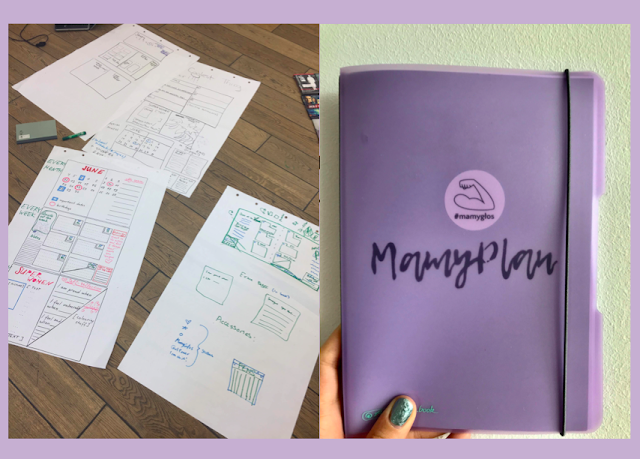Ten days and three women from three different countries. The task: design a social entrepreneurship product addressing the challenges of teenage girls in contemporary Polish society. One of the most immediate and obvious challenges is apparent from the very beginning: only one member of the team comes from Poland.
Will we be able to create something Polish teenage girls will like, use, and (most importantly for a social entrepreneurship challenge) actually want to buy? How will we find data and research on our target demographic or develop content without relegating one member of the team to doing nothing but translating Polish to English (our common working language) all day? How could a Ukrainian and an American possibly know what Polish teenage girls find engaging, trendy, or cool?
Within minutes of our first brainstorming meeting we came to an important realization: our experiences as women, and more specifically as former teenage girls, were markedly similar. From Ukraine to the United States, with Poland in between, each member of the group had struggled amidst an adolescence riddled with sexism and anti-feminist backlash. All of us knew what it was like to grow up searching for self-identity in spaces where every message seemed designed to tell you the same thing: you, as a teenage girl, as a future woman, are less. Less capable, less valuable, less essential than your male counterparts. Gender inequality was hidden in plain sight and pervasively restrictive, no matter where or when you grew up. Our data on teenage girls in Poland presented an eerily comparable picture: they were still facing many of the same challenges we had faced a decade earlier.
So how could we design a product that would help teenage girls face the myriad of challenges that come from growing up in such a society?
Our idea was to create a judgement-free space for self-development accentuated by the stories of female activists, novelists, engineers, and educators—basically everyone our history books left out. We wanted to encourage body positivity, STEM (science, technology, engineering, and math) exploration and artistic expression, and we wanted all this in a portable, affordable, and practical everyday object. In consultations with MamyGłos (a feminist NGO promoting women’s rights, women’s history and the empowerment of teenage girls across Poland) we came up with an idea that would contain everything mentioned above in an accessible and appealing form.
A screen of the prototype pages of the MamyPlan planner
That’s how we invented a new and innovative planner that combines the best parts of a calendar, agenda and diary. It’s a daily self-esteem booster filled with activities and content suggestions crowdsourced directly from teenage girls themselves. Designed and written initially in English and subsequently translated into Polish, our goal was to combine practicality with pragmatism by capitalizing on the current rise of Polish feminism as it coincides with the opening of MamyGłos’s first online store.
Our work over last 10 days has been surprisingly smooth. The HIA fellowship is very demanding, and requires us to spend many hours a day working and attending lectures together (plus Meredith and Milena are roommates!). In spite of this intense experience, we had no quarrels, no struggles, and no slowdowns. Our common understanding of gender inequalities—built on personal experiences—turned out to be stronger than the cultural differences between us. With lots of power and positivity, we’ve quickly moved from the planning to the execution–just as if the idea of this project had always been in our minds and hearts. We dove into the creation of the planner’s content so deeply, that we completely forgot about one small, yet highly important element of the project – its name!
This is where the only real struggle we faced started. Should we name it in Polish or in English? How could we make it sound catchy, appealing and hashtagable? Two stressful days, hours of brainstorming and thousands of post-its later, we finally came up with the best idea: ask the teenagers themselves!
Teens were actively involved in the choice of the name
After an online poll, our planner finally got its name – almost a hundred girls voted to call it MamyGłos-MamyPlan and we couldn’t believe we hadn’t thought of it earlier. It envisions all the main ideas behind the project – our 3 P’s: power, positivity and, of course, planning.
From an idea to the prototype
So, what’s the lesson we learned about the development of a social entrepreneurship product that we want to share with others? Do it with lots of passion and GIRL POWER. It always works.
By Milena Adamczewska, Meredith Blake and Kateryna Kyrychenko, participants of the 2018 Humanity in Action Warsaw Fellowship




Comments
Post a Comment